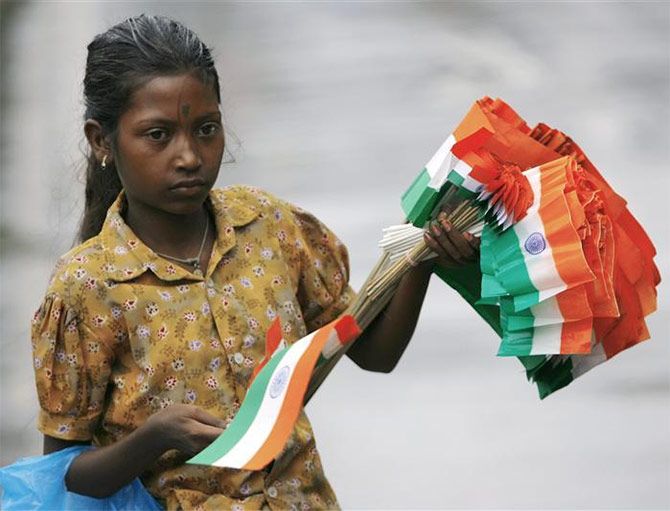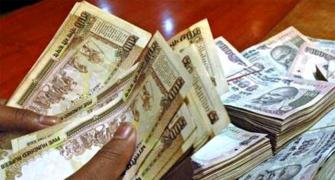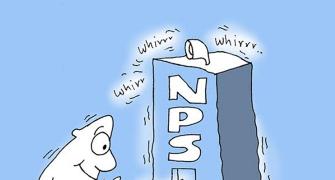
Since April 2015, 33 deals of Rs 82k crore (Rs 82 trillion) were announced; few took off
In September last year, infrastructure major Lanco Infratech had proposed to sell a part of its power generation business to pay off some of its debts.
Eight months on, the deal is yet to be closed.
Examples of proposed asset sales that haven’t materialised are aplenty.
For debt-laden companies struggling to meet their interest obligations, asset sales is an obvious solution.
But despite attempts, such sales have been far and few.
Even those proposed are yet to be completed.
A Business Standard analysis of asset sales of the 10 most indebted business houses, those profiled by Credit Suisse in the House of Debt report (October 2015), shows that these companies collectively announced 33 deals to sell assets since April last year.
The total value of these deals adds up to $12.29 billion (Rs 82,343 crore).
These are the only deals on which information is available.
But, of these, only six have been completed as on date.
Of these, the total value of the four deals on which information is available, adds up to a mere $379 million (Rs 2,546 crore).
Fourteen deals are pending, of which nine are worth $7.3 billion (Rs 48,910 crore); 12 remain in the proposal stage, of which seven are worth $4.3 billion (Rs 28,810 crore); while one has been withdrawn.
Data on asset sales was compiled from Bloomberg.
That only 33 deals have been proposed raises questions about the intentions of these companies to pare their debt.
It is possible that many corporate houses are hoping for the commodity cycle to revive and boost their flagging fortunes.
In which case, selling off their assets right now doesn’t make sense.
It is also possible that many of these companies are simply not marking down the value of their assets to reflect their true market value.
This will obviously discourage potential buyers.
Lenders, too, are not ready to take a haircut on these assets.
“In viable projects with huge debt burdens, lenders are not ready to take the requisite haircut to consummate deals.
"Also, in most of the Indian companies assets are lien to the lenders as security and the consortium of lenders are not able to come to a consensus,” said Khushboo Vaish, director, Alvarez & Marsal -- a professional services firm.
But it is equally likely that in the current sluggish macro-economic environment there aren’t enough buyers with deep pockets to actually buy these assets even at discounted rates.
“There are certain sectors which are in cyclical downward phase, e.g. steel, where the investor interest has been tepid so far,” said Vaish.
Thus, despite intentions to sell, asset sales may simply not materialise.
“Litigation risk and execution risks, along with hidden costs such as stamp duty, puts off buyers,” said Bharat Anand, senior partner, Khaitan & Co. While only six deals have been closed so far, it is possible that all of them may eventually go through -- due diligence, after all, takes time.
According to Ramesh K Vaidyanathan, managing director, Advaya Legal, it could take anywhere between four months to four years to dispose off a stressed asset, 'depending on quality'.
But it is possible that some many not go through.
As such, the financial position of these indebted companies is unlikely to improve immediately.
Reflecting the scepticism, a top executive at a large Mumbai-based bank said: “Money from the sale transaction (citing the Jaypee group) is yet to flow in. We have to keep watch till actual cash come in.
"The interest meter will be on till then.”
The fundamental question is that even if these deals do eventually go through, will the financial position of India Inc actually improve?
The answer, it seems, will vary from company to company.
Take the case of the GMR group.
Since July last year, it has announced five deals to sell its assets to bring down its debt. Of these five deals, four are likely to fetch the group in excess of $1.1 billion, or Rs 6,700 crore.
(The size of one deal is not known).
If all these four deals do eventually go through, the company’s debt level is likely to come down by Rs 7,703 crore (Rs 77.03 billion), bringing it down to Rs 35,710 crore (Rs 357.1 billion) from Rs 43,440 crore (Rs 434.4 billion) at the end of September 2015.
But despite this reduction, its debt to equity ratio would fall only marginally to 7.4 from 8.3 in 2014-15.
On the other hand, Jaiprakash Associates is another company that is struggling under its debt burden.
As of March 2015, its total consolidated debt stood at Rs 75,274 crore (Rs 752.74 billion), implying a debt to equity ratio of 5.1.
It had Rs 23,848 crore (Rs 238.48 billion) of debt retiring in 2015-16.
Since June last year, the company has announced four deals.
Details of the deal size of two are not known (Bina Thermal Power Plant and Bhilai Jaypee Cement Ltd).
But the other two deals add up to $2.3 billion (Rs 15,410 crore).
Proceeds from just these two deals alone would be enough to bring down its debt to equity ratio significantly to 4 from 5.1 at the end of March 2015.
Now, bringing down their debt levels will obviously lower the interest burden of these companies.
But does it put these companies on sounder footing? Will they be in a better position to increase capex?
The answer is not that straight forward, partly because the assets sold would have contributed significantly to the bottom line of these companies.
Thus, with these assets being sold off, future cash flows of these companies will take a hit.
Many turnaround professionals and legal experts, who deal with stressed assets, feel there is no immediate relief in sight to corporate India’s debt pains.
“There is need for policy intervention, such as, create an empowered committee, with immunity from vigilance, to look at individual cases of stressed assets and deal with them appropriately,” said Vaidyanathan.
Agreed A Subba Rao, group CFO, RPG Enterprises, who in his previous 14-year stint in the GMR group, closely dealt with financing several capital intensive projects.
“In many cases assets have become stressed because of the policy initiatives by the then government.
"This can only be corrected by another government intervention,” said Rao.
As a way forward, government-owned organisations, such as NTPC and NHAI, could take over some of the stressed assets in the power and road sectors, respectively, he suggested.
But whether or not the government will bite the bullet is another matter.
The image is used for representational purpose only. Photograph: Reuters










